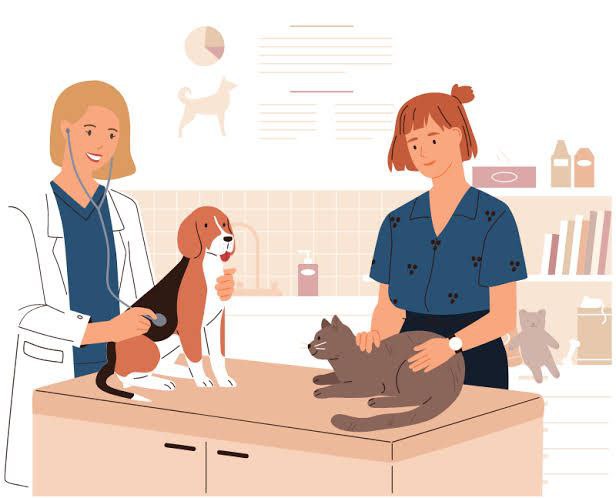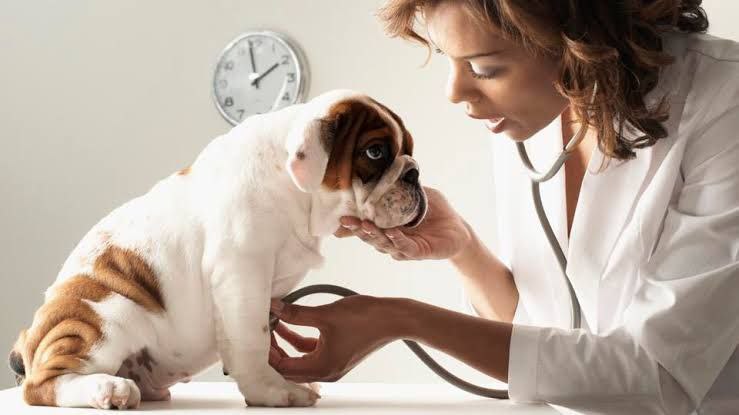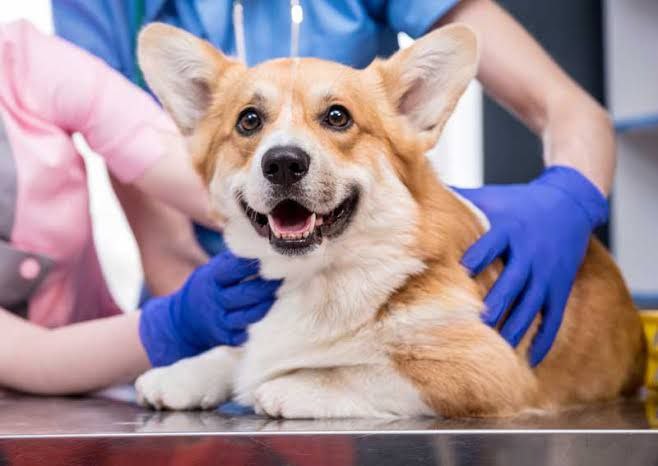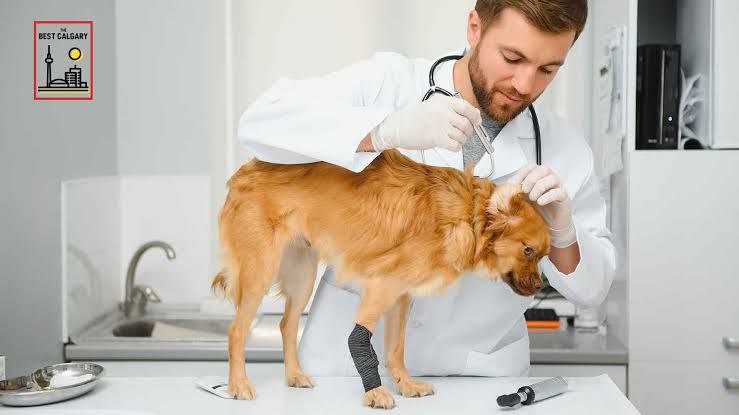When Should You Be Concerned About Your Dog Throwing Up?
Normal vs. Abnormal Vomiting
Vomiting is a natural defense mechanism for dogs to expel unwanted substances from their stomach. Occasional, isolated incidents of vomiting may not be a cause for concern. However, persistent or severe vomiting can be an indication of an underlying health issue. It’s essential to differentiate between normal and abnormal vomiting to determine when to be concerned.When Should You Be Concerned About Your Dog Throwing Up
Signs of Concern
Here are some signs that should alert you to seek veterinary attention for your dog’s vomiting:
- Frequency and Duration
- Frequent or prolonged vomiting episodes, especially if they persist for more than 24 hours, require veterinary evaluation.
- Persistent or Intractable Vomiting
- If your dog is unable to keep any food or water down and continues to vomit despite fasting, it could indicate a more serious problem.
- Projectile Vomiting
- Forceful expulsion of vomit, where it is ejected across the room or at a distance, can be a sign of an obstruction or gastrointestinal issue.
- Blood in Vomit
- The presence of blood in vomit, which may appear bright red or have a coffee ground-like appearance, indicates potential internal bleeding and requires immediate veterinary attention.
- Change in Vomit Appearance or Odor
- If the vomit changes in color, consistency, or odor (e.g., frothy, yellow, green, foul-smelling), it could indicate an underlying problem.
- Other Symptoms
- If your dog exhibits additional concerning symptoms such as lethargy, loss of appetite, abdominal pain, dehydration, or changes in behavior, it’s important to consult your veterinarian.When Should You Be Concerned About Your Dog Throwing Up

Potential Causes of Concern
There are several potential causes for concern when a dog is throwing up. Some common reasons include:
- Gastrointestinal Disorders
- Conditions such as gastritis, gastroenteritis, inflammatory bowel disease (IBD), or gastric ulcers can lead to recurrent vomiting.
- Dietary Issues
- Dietary indiscretion, food allergies, intolerances, or sudden changes in diet can cause vomiting in dogs.
- Foreign Objects or Obstructions
- Ingestion of foreign objects or substances that cannot be digested can lead to vomiting, especially if there is a partial or complete obstruction in the gastrointestinal tract.
- Infections
- Bacterial, viral, or parasitic infections, such as parvovirus, can cause vomiting along with other symptoms.
- Organ Dysfunction
- Liver or kidney disease, pancreatitis, or other organ disorders can result in vomiting as a symptom.
- Toxic Ingestion
- Ingestion of toxic substances, plants, medications, or chemicals can cause vomiting in dogs.
What to Do if You’re Concerned
If you’re concerned about your dog’s vomiting, it’s important to take the following steps:
- Contact Your Veterinarian
- Reach out to your veterinarian and provide detailed information about your dog’s vomiting episodes, including frequency, duration, appearance, and any accompanying symptoms.When Should You Be Concerned About Your Dog Throwing Up
- Follow Veterinary Guidance
- Your veterinarian may recommend specific actions, such as fasting, providing small amounts of water, or bringing your dog in for an examination. Follow their instructions closely.When Should You Be Concerned About Your Dog Throwing Up
- Monitor Your Dog
- Keep a close eye on your dog’s condition, including any changes in vomiting frequency, appetite, behavior, or overall well-being. Report any significant changes to your veterinarian.When Should You Be Concerned About Your Dog Throwing Up
- Avoid Home Remedies
- While it may
What to Do if You’re Concerned (Continued)

be tempting to try home remedies or over-the-counter medications to alleviate your dog’s vomiting, it’s crucial to avoid self-medication. Some substances may be harmful to dogs or mask underlying health issues, making it harder for your veterinarian to make an accurate diagnosis.When Should You Be Concerned About Your Dog Throwing Up
- Follow Dietary Recommendations
- Your veterinarian may recommend a specific diet or feeding guidelines to follow during your dog’s recovery. It’s important to adhere to these recommendations to support their digestive system.When Should You Be Concerned About Your Dog Throwing Up
When to Seek Emergency Veterinary Care
In some cases, vomiting can indicate a medical emergency that requires immediate veterinary attention. Here are situations where you should seek emergency care for your dog:
- Severe or Persistent Vomiting
- If your dog is vomiting continuously or forcefully, it may lead to dehydration and electrolyte imbalances. Immediate veterinary care is necessary.
- Presence of Blood or Coffee Ground-like Material
- If you observe fresh blood or a dark, coffee ground-like substance in the vomit, it could indicate internal bleeding. This requires prompt evaluation by a veterinarian.
- Abdominal Distention or Pain
- If your dog’s abdomen appears bloated, distended, or painful to the touch, it could indicate a more serious condition such as gastric dilatation-volvulus (GDV) or an intestinal obstruction.When Should You Be Concerned About Your Dog Throwing Up
- Lethargy or Weakness
- If your dog is vomiting and becomes lethargic or weak, it suggests a severe illness or systemic issue that requires immediate attention.
- Other Severe Symptoms
- Any combination of severe symptoms, including pale gums, difficulty breathing, collapse, or seizures, should prompt immediate veterinary intervention.
Remember, each dog is unique, and the severity of vomiting and accompanying symptoms can vary. Trust your instincts and contact your veterinarian whenever you’re concerned about your dog’s well-being. Early detection and proper veterinary care can help diagnose and address the underlying cause of the vomiting, promoting your dog’s recovery and overall health.When Should You Be Concerned About Your Dog Throwing Up
Additional Tips and Precautions
- Keep Track of Vomiting Episodes
- Maintain a record of your dog’s vomiting episodes, noting the date, time, duration, and any observed changes in vomit appearance or frequency. This information can assist your veterinarian in making an accurate diagnosis.When Should You Be Concerned About Your Dog Throwing Up
- Hydration
- Offer small amounts of water to your dog after vomiting has subsided. If your dog continues to vomit, withdraw water temporarily and consult your veterinarian for further guidance on rehydration methods.When Should You Be Concerned About Your Dog Throwing Up
- Medication and Supplements
- Avoid administering any over-the-counter medications or supplements without veterinary approval, as they may interfere with the diagnosis or exacerbate the condition. Follow your veterinarian’s prescribed medications, if any.When Should You Be Concerned About Your Dog Throwing Up
- Gradual Food Introduction
- Once your dog’s vomiting subsides, gradually reintroduce a bland diet recommended by your veterinarian. This typically consists of easily digestible foods such as boiled chicken and rice. Follow your veterinarian’s instructions on portion sizes and feeding frequency.
- Environmental Factors
- Evaluate your dog’s environment for any potential triggers that could lead to vomiting, such as dietary indiscretion or exposure to toxins. Remove or secure any hazardous substances, plants, or objects that your dog may ingest.

Prevention and Maintenance of Digestive Health
To help prevent future episodes of vomiting in your dog, consider the following practices:
- Proper Diet
- Feed your dog a nutritionally balanced diet appropriate for their age, breed, and health condition. Avoid sudden diet changes, and opt for high-quality commercial dog food or homemade meals prepared under veterinary supervision.
- Meal Management
- Divide your dog’s daily food portions into multiple smaller meals throughout the day, rather than feeding one large meal. This can help prevent overeating and aid digestion.
- Avoid Table Scraps
- Restrict your dog’s access to table scraps and human food, as certain ingredients can be harmful or trigger digestive upset.
- Slow Feeding
- For dogs prone to eating too quickly, use puzzle feeders or slow-feed bowls to slow down their eating pace. This can reduce the risk of gulping air and overloading the stomach, which may lead to vomiting.When Should You Be Concerned About Your Dog Throwing Up
- Regular Veterinary Check-ups
- Schedule routine wellness exams for your dog, including gastrointestinal health assessments. Regular veterinary care can help identify and address any underlying health issues before they escalate.When Should You Be Concerned About Your Dog Throwing Up
Remember, the information provided is not a substitute for professional veterinary advice. If you have concerns about your dog’s vomiting or overall health, consult your veterinarian for a proper diagnosis and guidance tailored to your dog’s specific needs.
| When Should You Be Concerned About Your Dog Throwing Up? |
|---|
| Signs of Concern |
| – Frequent or prolonged vomiting episodes |
| – Persistent or intractable vomiting |
| – Projectile vomiting |
| – Blood in vomit |
| – Change in vomit appearance or odor |
| – Other accompanying symptoms |
| Potential Causes of Concern |
| – Gastrointestinal disorders |
| – Dietary issues |
| – Foreign objects or obstructions |
| – Infections |
| – Organ dysfunction |
| – Toxic ingestion |
| What to Do if You’re Concerned |
| – Contact your veterinarian |
| – Follow veterinary guidance |
| – Monitor your dog’s condition |
| – Avoid home remedies |
| – Follow dietary recommendations |
| When to Seek Emergency Veterinary Care |
| – Severe or persistent vomiting |
| – Presence of blood or coffee ground-like material |
| – Abdominal distention or pain |
| – Lethargy or weakness |
| – Other severe symptoms |
| When Should You Be Concerned About Your Dog Throwing Up |
| Additional Tips and Precautions |
| – Keep track of vomiting episodes |
| – Hydration |
| – Medication and supplements |
| – Gradual food introduction |
| – Environmental factors |
| Prevention and Maintenance of Digestive Health |
| – Proper diet |
| – Meal management |
| – Avoid table scraps |
| – Slow feeding |
| – Regular veterinary check-ups |
| FAQ | Answer |
|---|---|
| Why is my dog throwing up? | There can be various reasons for dogs to vomit, including dietary indiscretion, gastrointestinal issues, infections, toxins, or underlying health conditions. It’s best to consult with your veterinarian for a proper diagnosis. |
| Should I be concerned if my dog vomits once? | An isolated incident of vomiting may not be concerning, especially if your dog is otherwise acting normal. However, monitor for any recurrence or accompanying symptoms. |
| Can I give my dog over-the-counter medications for vomiting? | No, it’s not recommended to administer over-the-counter medications without veterinary guidance, as some can be harmful to dogs or may mask underlying health issues. Contact your veterinarian for appropriate advice. |
| How long should I wait before contacting my veterinarian? | If your dog’s vomiting is persistent, severe, or accompanied by other concerning symptoms, it’s best to contact your veterinarian promptly for guidance. |
| What should I do if my dog vomits blood? | Vomiting blood (hematemesis) is a serious sign that requires immediate veterinary attention. Contact your veterinarian or an emergency clinic for immediate evaluation. |
| Can I feed my dog after it vomits? | It’s generally recommended to withhold food for a few hours after vomiting to allow the stomach to settle. Then, gradually reintroduce a bland diet as advised by your veterinarian. |
| When should I worry about dehydration in my dog? | If your dog is unable to keep water down, has prolonged vomiting, or shows signs of dehydration such as lethargy, dry gums, or sunken eyes, seek veterinary assistance promptly to address dehydration. |
| Is it normal for a dog to vomit when switching foods? | Some dogs may experience digestive upset, including vomiting, when switching foods abruptly. Gradual transitions and introducing new foods slowly can help minimize this risk.When Should You Be Concerned About Your Dog Throwing Up |
Read More:
